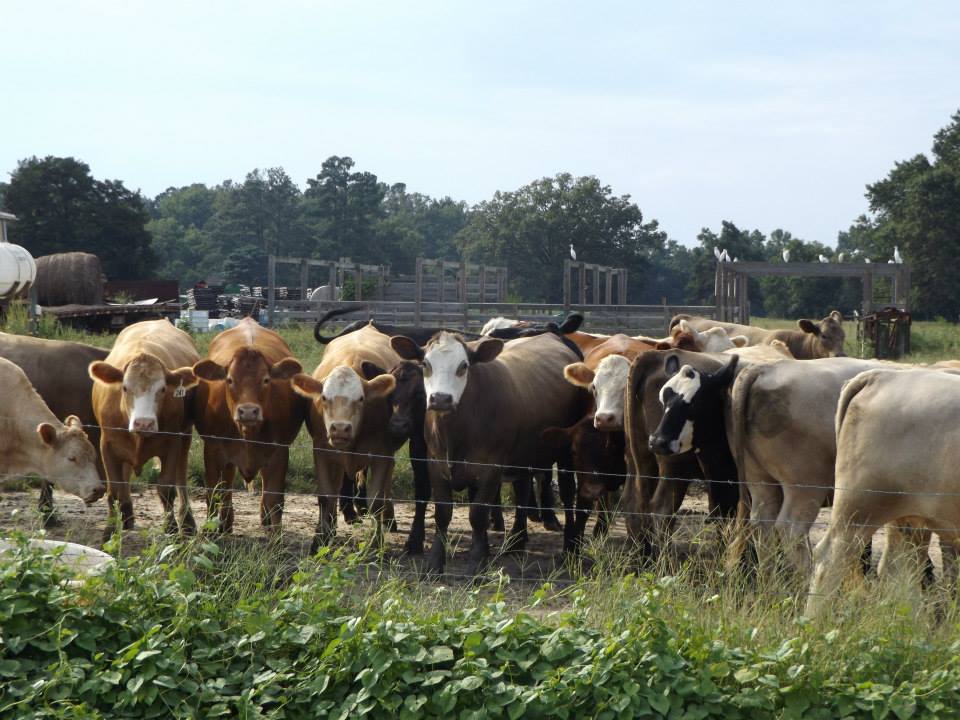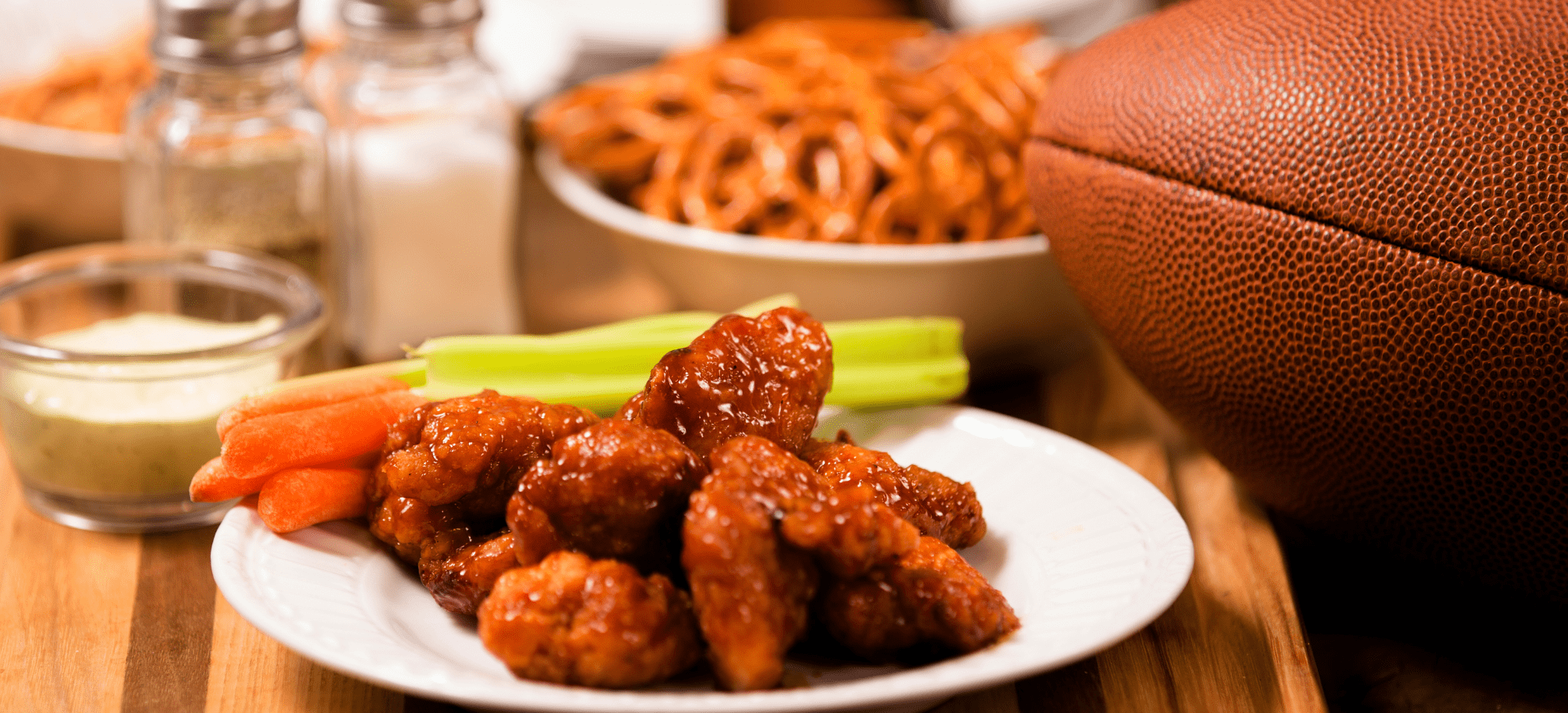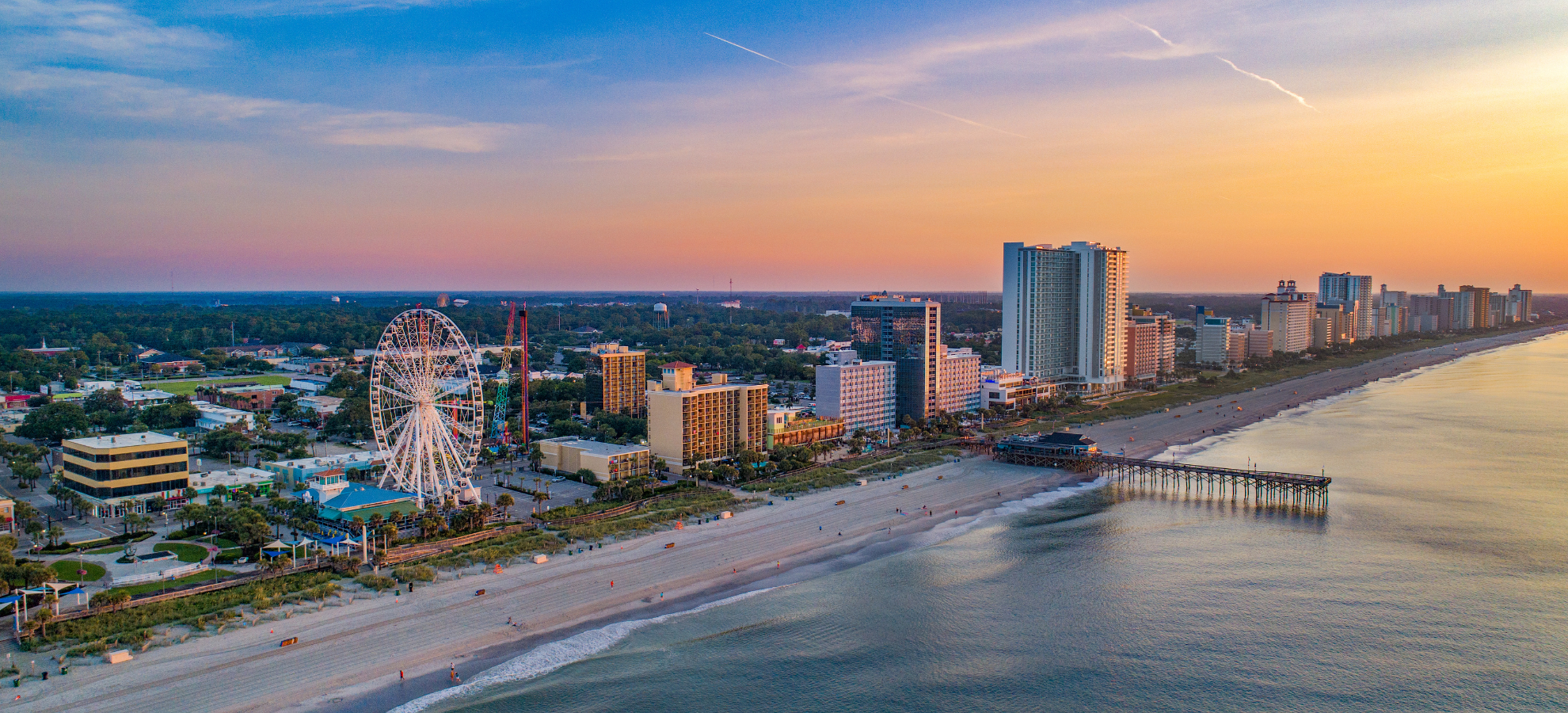A Glimpse at The Beef You Can Find There
by Melissa LaScaleia
It’s May once more. As we welcome the return of spring, we also welcome back the Deville Street farmers market (recently expanded to include a portion of Howard Avenue), as well as the farmers and artisans who, with their skills and dedication to their craft, provide us with the beauty of locally harvested and locally made products. This year, we chose to take a look at the beef business so our community can have a better understanding of the perspective which shapes the choices of one local farm in our area.
The Insider called WK Price Farms, new arrivals to the market in both Market Common and Surfside Beach, to learn more about them.
Katie Price and her husband Wesley own and operate their farm together on a little over 2,000 acres in Sork, South Carolina, a small town located between Mullins and Dillon. Farming has been in Wesley’s family for generations, and he has been growing corn, soybeans and peanuts his entire life. The resulting hay from the crops is used as feed for the cows, ensuring a sustainable farming system.
Once solely a crop farmer, Wesley decided to expand the farm in 1999 to make it more economically viable. They began with five heifers (for the uninitiated, that’s a female cow that hasn’t yet had a baby) and a bull. Over the years, as he’s purchased more cows and the heifers had calves, the herd has grown. Today they have over 300 head of cattle that they care for daily.
In the early days, they weren’t producing enough beef to sell, but they would slaughter one for their family to eat over the course of a year. When they had to purchase beef from the grocery store to supplement their own supply, they noticed such a disparity in the quality of the meat that they saw an opportunity.
“The way you treat a carcass after it is slaughtered is almost as important as the way you treat it before the slaughter in terms of taste,” Katie says. “It’s important to take your time with it.”
In 2015, congress repealed the COOL law, the Country of Origin Labeling requirements for beef and pork products. The repeal makes it impossible, or at the very least, extremely difficult for consumers to trace where the beef and pork they’re buying is raised and produced. It may still be labeled, but that’s because the producer opted to disclose that information.
Katie and her family were concerned not knowing the origins of their beef.
“That’s the plus of buying locally,” she says. “Whether it’s produce, dairy, or protein, you know where it’s from.”
They decided to launch their own local beef company in 2016, and began a trial run by selling large bulk orders. Then they began attending Saturday farmers markets in Florence and Conway.
“We had such a positive response that first year,” Katie says, “that when I had my fourth child in 2017, I decided to quit my job and approach this like a full-time business. We picked up more markets, and in winter, we do home deliveries all over Florence County. It’s really grown.”
“We raise our cattle on pasture and finish them on corn we grow ourselves to condition the meat,” she continues. “We also feed them peanut hay.”
There are two ways to finish cattle— grass or grain. Finishing is a term which applies to the period of time before the slaughter when the cattle are fed an energy-dense diet to add muscle and well-distributed fat to their frame, in a short amount of time.
Depending on what method you choose makes a big difference in the taste of the meat. Cattle finished on grass will be much leaner and have a more grassy, game-like flavor. Cattle finished on corn puts more fat in the meat and lends a sweater flavor.
Katie’s customers preferred the latter taste, and because she also finds it easier to produce a more consistent product when finished in this way, it’s the method they choose for most of their cattle.
“When you rely on Mother Nature 100% like that,” she says in speaking about raising cattle on pasture alone, “if you have a hard year and the pastures aren’t what they should be, it makes it hard to have a finished product. Yes, corn is a grass technically, but we allow it to fruit, so it produces a different flavor.”
Katie and Wesley raise their cattle without any additional hormones or antibiotics. The corn that they grow and feed their cattle is a commercial, GMO corn.
“I believe there are a lot of scare tactics around GMO products,” she says. “We use GMO seeds because you can plant them with a no-till. Because of the way it has been modified, you don’t have to put the amount of chemicals on it to spray for pests that you had to previously. It’s no different from selective breeding. Because of this, we’re able to produce more. Farmers are 2% of the population and we don’t have enough food to feed the rest of the population. You have to be as efficient as possible.”
It’s important to know the realities of those bringing us food from both near and far away as well as the bigger picture story. This is one farm’s choice.
Join the Discussion
So what’s your perspective? Join the discussion about GMOs and local food on our Facebook page
Read more articles about our local farmers market and farmers here, there, and here again.
Market Common Farmers Market
Deville Street and Howard Avenue, Saturdays 10am-3pm through September. Free parking in the garages and side streets.
















